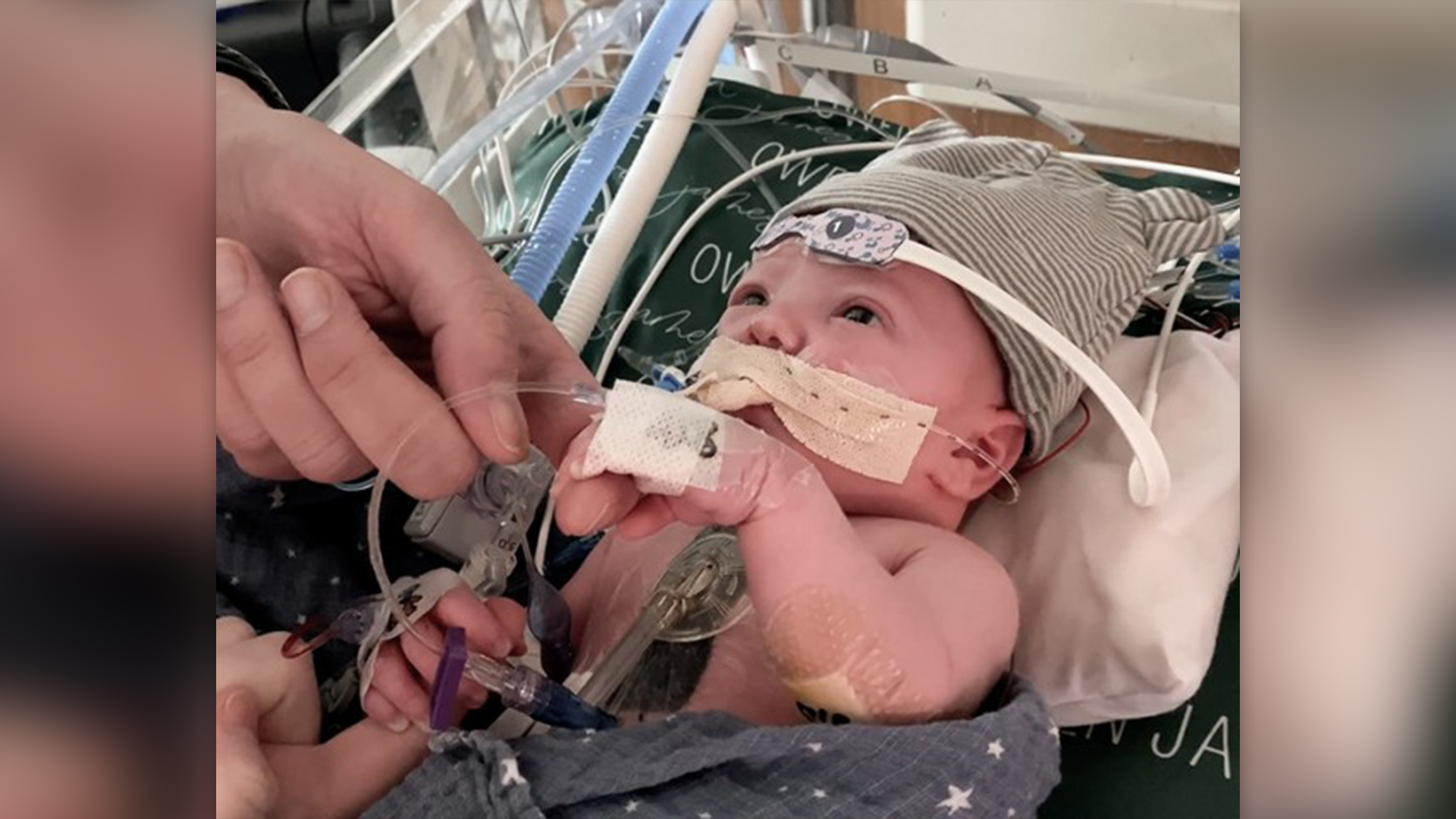
A baby became the world's first partial-heart transplant recipient in 2022, and now, more than a year later, the toddler's transplanted tissues still show "excellent" function and are growing along with his body, doctors report.
"This publication is proof that this technology works, this idea works, and can be used to help other children," Dr. Joseph Turek, who led the procedure as the chief of pediatric cardiac surgery at Duke Children's Hospital & Health Center in Durham, North Carolina, said in a statement.
Owen Monroe, the transplant recipient, underwent the groundbreaking procedure in Spring 2022, when he was 18 days old. Before birth, the baby was diagnosed with a heart malformation in which there's only one large blood vessel to carry blood out of the heart, rather than the two smaller ones typically found in human hearts.
Having only one outflow vessel increases the amount of blood dumped into the lungs, making it harder to breathe, and it also reduces the amount of blood that flows to the rest of the body. Owen's single outgoing blood vessel was also leaky, compounding the problem.
Related: 1st-of-its-kind heart transplant in infant could prevent organ rejection
Treating the malformation either required a full heart transplant — which might have required too much time to procure a donor organ — or the transplantation of heart valve implants that wouldn't grow with Owen's body. Such implants, typically taken from deceased organ donors, need to be replaced frequently, and each subsequent surgery puts the infant's life at risk.
Faced with these choices, Owen's doctors and parents opted for a third treatment option that had only ever been tried in pigs. So far, that decision has panned out very well, Turek and his colleagues reported Tuesday (Jan. 2) in JAMA.
The valves and arteries used in Owen's partial-heart transplant came from a 2-day-old baby girl who'd died soon after a complicated delivery and whose heart was donated immediately after death. The donor's heart muscles weren't healthy enough for a full transplant to be performed, but she had "structurally normal outflow valves with excellent function," the study authors noted.
These still-living heart tissues were transplanted into Owen in an eight-hour procedure. He was discharged from the hospital 30 days after the surgery. He needed a lower dose of immune-suppressing drugs than normally required for whole-heart transplants, his doctors noted.
"Normal heart transplant patients go on two agents to manage their rejection issues," Turek told CNN. "And Owen is on one of those two agents, at basically half a dose."
Since the procedure, Owen's transplanted valves have increased in size along with the rest of his heart, and their function has been excellent, his doctors reported in JAMA. The growing toddler has been hitting all his developmental milestones, such as crawling, standing, looking around for objects and starting to make sounds.
Since 2022, 13 additional partial-heart transplants like Owen's have been performed at four medical centers around the world, with the majority being done at Duke. Some of these have been "domino heart transplants," in which a patient with healthy valves but weak heart muscles receives a full heart transplant, and their healthy valves are then donated to another patient.
"Of all the hearts that are donated, roughly half meet the criteria to go on to be used for full transplant, but we believe there's an equal number of hearts that could be used for valves," Turek said in the statement. "If you introduce the donated hearts that weren't being put to use into the supply chain and add the valves from domino heart transplants, that can create a substantial change."
Ever wonder why some people build muscle more easily than others or why freckles come out in the sun? Send us your questions about how the human body works to community@livescience.com with the subject line "Health Desk Q," and you may see your question answered on the website!







